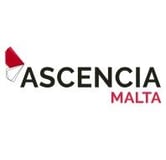Stay up to date with the latest developments in international education with EdNews! Each month, we bring you essential updates on campus openings, relocations, mergers, new programs, team announcements, promotional opportunities for Edvisor agencies, and all the relevant news in the field of international education.
Let's join together to explore the new developments in international education!
📋 Skip straight to the topic you're interested in!
NEW Master in Computer Science with Ascencia Malta Business School
In a delightful update from the educational sector, Ascencia Malta has announced an exciting expansion of its programs, aiming to enrich students' learning landscape. With a keen eye on the evolving trends in education, Ascencia Malta has now been accredited to offer a series of Master's degrees, with a particular focus on Computer Science. This strategic move gives students a golden opportunity to dive deeper into their studies within a research-led environment. The newly introduced programs are designed to cater to a wide array of interests and career aspirations, offering modules in cutting-edge areas such as Artificial Intelligence, Distributed Systems, Security, FinTech, and Software Engineering. This flexibility ensures students can tailor their educational journey to suit their personal and professional goals. Ascencia Malta's approach empowers students to not only design and implement large and complex computer systems but also to evaluate them critically. They will gain proficiency in various programming languages and software development methodologies, further enhancing their versatility and employability in the rapidly changing tech landscape. Moreover, the programs emphasize the development of expertise in conducting original research in computer science. This paves the way for students to contribute significantly to advancing the field through various forms of scholarly communication, including publications and presentations. Adding to the prestige of these offerings, the Masters in Computer Science programs have been accredited at level 7 by the Malta Further & Higher Education Authority. This accreditation is a testament to the quality and rigour of the programs, ensuring that they meet the highest standards of academic excellence. |
ATC launches Language Teaching in the Age of AI
|
ATC Language Schools in Ireland is thrilled to announce a brand-new course for teacher training and development, focusing on the cutting-edge topic of Artificial Intelligence (AI). This innovative program is a welcome addition to ATC's wide range of offerings for English language teachers and educators teaching various subjects in English.
Titled "Language Teaching in the Age of AI," this course is designed for language teachers of any background. It aims to explore the rapidly evolving field of AI and highlight its growing impact on education, especially language learning. The course dives into practical applications of digital tools in teaching and learning, focusing on how AI can revolutionize language education.
The course designer, Sarah Corrigan, shares her enthusiasm about the launch: "As the designer of our innovative AI course for teachers, I'm excited to witness its launch. The potential of AI to support both language teachers and learners was a frequent topic in previous teacher training courses, making it clear that this is a vital skill teachers are eager to learn how to harness.
Creating this course opened my eyes to just how beneficial AI can be for language teachers. From lesson planning, building materials and activities, assessing students, and integration to support learners' language skills, the possibilities are endless!"
Recognizing AI's capability to transform language teaching, from crafting dynamic texts for reading and listening to designing practical learning activities and guiding students on personalized learning journeys, ATC designed the course to equip language teachers with the skills to integrate AI seamlessly into their daily teaching practices.
The course will run as a one-week program during July and August at ATC's central Dublin school. This setting offers an ideal backdrop for international language teachers to engage in meaningful discussions, develop innovative ideas, and network with peers.
Aligned with the Erasmus+ KA1 objectives, ATC’s teacher training and development programs are accessible to teachers worldwide and facilitated through partner agents.
Atlas Language School Dublin and Malta join IALC
|
|
🔗 ILAC 🔵 Edvisor ID: ilac |
📍 Dublin and Malta |
ILAC is thrilled to announce a fantastic development: Atlas Language School has joined the prestigious International Association of Language Centres (IALC) ranks!
What makes Atlas stand out? It's their all-encompassing approach that goes far beyond classroom learning. Their mission is special—to give every student an 'unforgettable life and learning experience.' And they're all in when it comes to delivering top-notch service at every turn.
This means not just excellent classes but also outstanding support, great places to stay, and a lively mix of social and cultural activities that bring learning to life. Atlas is on a mission of continuous improvement, always looking to improve its services and exceed expectations every year.
Becoming part of IALC is a big deal for Atlas. They wanted to team up with an organization that shares their high standards of excellence, collaboration, and growth.
This step reflects their dedication to providing high-quality language education, prompting them to seek IALC membership. With this new membership, Atlas opens the door to collaborating with schools and agents who share their vision, ensure quality education, and embrace opportunities for ongoing enhancement and development.
Canada implements new visa rules for Mexican travellers
Immigration, Refugees, and Citizenship Canada (IRCC) have announced a significant update: Some Mexican travellers might now need a visitor visa to enter Canada, sparking concerns about its impact on business and educational travel. As of February 29th, only Mexicans flying into Canada with a valid U.S. visa or a Canadian visa from the last 10 years are eligible for the Electronic Travel Authorization (eTA). Those not meeting these criteria must apply for a visitor visa.
This change is in response to a rise in asylum claims by Mexican citizens. IRCC aims to maintain Mexicans' mobility while effectively managing immigration and asylum systems. Despite this, the process for Mexican citizens seeking study permits and work visas remains unchanged.
The Mexican agency association AMTE predicts this will negatively affect the number of students studying in Canada, though study and work programs are not directly impacted. The policy could benefit countries like Australia and Ireland, which are active in the Mexican market. Gonzalo Peralta of Languages Canada / Langues Canada notes it's early to assess the full impact but emphasizes that Mexican students are still welcome.
IRCC assures that with the current criteria, most Mexicans would still qualify for an eTA. However, the actual effect of this change on travel and educational exchanges remains to be seen as stakeholders adapt to these new requirements.
Find additional details regarding this topic here.
BC implements a Study Permit Cap System for international students
British Columbia (BC) has launched its provincial attestation letter system, which is essential for international students affected by Canada's recent study permit cap. As of March 4th, these letters will verify a student's inclusion within BC's quota for study permit applications.
This initiative responds to the Canadian federal government's announcement of a two-year study permit cap in January, necessitating provincial attestation letters for application management. These letters are crucial for specific postsecondary study permit applications but are not required for primary, secondary, master's, and Ph.D. students or programs under six months.
BC's quota under the new cap is 83,000 applications, a reduction from the previous year's 97,000. This is expected to result in about 50,000 study permit approvals. The distribution of attestation letters favours public postsecondary institutions with 53%, leaving 47% for private institutions, which represents a significant decrease for the latter compared to last year.
The BC government, led by Minister Lisa Beare, is acting swiftly to mitigate the impact on post-secondary institutions and support international students' educational success in the province. Despite challenges posed by the federal cap, BC is adapting with stricter regulations for its Designated Learning Institutions (DLIs) and a two-year freeze on new DLI approvals.
Ravi Parmar highlighted the government's commitment to maintaining high-quality post-secondary education that aligns with local and international students' expectations, ensuring BC remains a top choice for global learning.
Find additional details regarding this topic here.
USCIS Increases Premium Processing Fees for Visas
Big news for those navigating the US visa process: USCIS has announced an uptick in premium processing fees for some visa extensions and work authorizations, effective February 26th.
For students in the F, M, and J categories using Form I-539 to extend or change their status, the premium fee has jumped from $1,750 to $1,965. Additionally, F-1 students applying for Optional Practical Training (OPT) with Form I-765 will now face a premium processing fee of $1,685, up from $1,500.
This change, USCIS explains, is due to the USCIS Stabilization Act's provisions, which allow fee adjustments every two years based on inflation. Interestingly, these fees had remained steady for three years before this increase.
The Department of Homeland Security highlights that the extra funds from these premium processing fees will enhance service quality, streamline processes, and help tackle backlogs.
But that's not all—starting April 1st, 2024, regular processing fees for these forms are also set to rise. The I-539 form will cost $470 (paper) or $420 (electronic), a significant hike from the current $370. The I-765 form fees will also increase to $520 (paper) or $470 (electronic) from the current $410. This step aims to ensure the continuous improvement of services and efficiency in handling applications.
Find additional details regarding this topic here.






.png?width=117&height=225&name=logo_ialc_blue_RGB%20(1).png)




